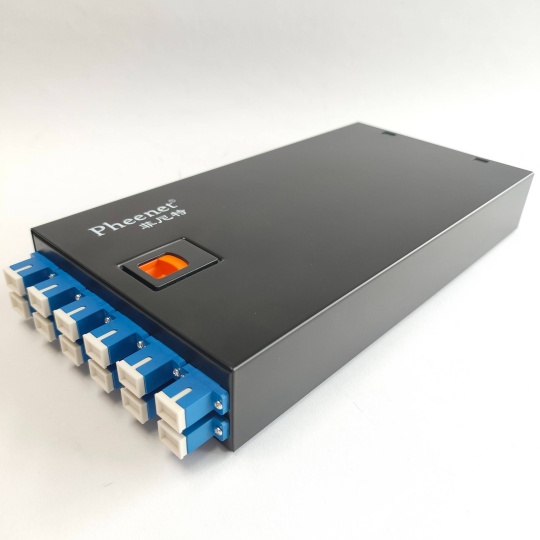Why Do Food Processing Plants Require Hygienic Industrial Cable Assem...
Imagine this: a high-pressure sprayer cleaning down equipment. Your standard cable assembly endures the blast… until water seeps into the connector. Moisture pools inside, unseen, becoming a breeding ground for bacteria. Later, a cleaning chemical splashes onto its plastic jacket. Over time, the material cracks and flakes, risking contamination of the food stream. These aren’t just hypothetical nightmares – they’re real risks in food plants where standard wiring fails.
For facilities producing our food, ordinary cables are a liability. They introduce significant risks:
- Harboring Pathogens: Cracks, porous materials, and crevices trap moisture, food particles, and microbes, creating “biofilms” that are incredibly hard to eradicate and pose contamination risks.
- Physical Contamination: Brittle plastics crack under cleaning chemicals or temperature swings; flakes and broken pieces can fall into product.
- Chemical Degradation: Harsh sanitizers (acids, caustics, oxidizers) quickly degrade standard plastics and coatings.
- Operational Downtime: Constant cleaning wears out non-robust assemblies, leading to failures, electrical shorts, and unplanned maintenance stops.
- Regulatory Failure: Failure to meet stringent FDA, USDA, EHEDG, or 3-A standards can result in shutdowns or recalls.
Hygienic industrial cable assemblies are engineered specifically to solve these problems.
Here’s how they meet the unique demands of food processing:
- Waterproof & Impervious Design:
- High IP Ratings (IP67, IP68, IP69K): Crucial for washdown areas. Ensures high-pressure sprays, steam, and submersion won’t penetrate connectors or damage cables. IP69K is the gold standard for direct, high-pressure/high-temperature cleaning.
- Sealed Connections: Premium gaskets, compression seals, and overmolding create watertight barriers. Solution: Specify assemblies explicitly rated for your washdown pressures and temperatures.
- Chemical Resistance:
- Specialized Jacket Materials: Cables use food-grade polymers (PUR, TPEs, PTFE variants) that resist degradation from cleaning agents and lubricants. Solution: Verify the cable jacket material compatibility with your plant’s specific sanitizers and chemicals.
- Resistant Connector Housings: Similar robust plastics (PBT, PPS) or high-grade stainless steel prevent cracking and chemical absorption. Solution: Choose stainless steel (especially 316L) for the harshest environments; robust plastics where applicable.
- Smooth, Easy-to-Clean Surfaces:
- Non-Porous & Non-Shedding: Materials won’t absorb liquids or flake off. Eliminates hiding places for bacteria.
- Seamless Construction: Smooth overmolding instead of joints/clips that trap debris. Rounded corners and minimal crevices.
- Hygienic Color (Often Blue): Easy visual identification against food and quickly spots wear or breaks. Solution: Ensure the entire assembly (connectors and cable) is designed with smooth contours and cleanable materials.
- Temperature Resilience:
- Withstands Freezing & Heat: Reliable operation in chill rooms, near ovens, or through sterilization processes without cracking or becoming brittle.
- Handles Thermal Shock: Resists damage from sudden temperature changes during cleaning cycles. Solution: Check the assembly’s rated operating temperature range matches your process extremes.
- Mechanical Durability:
- Abrasion & Crush Resistant: Withstands bumps from equipment, trolleys, and physical handling common in busy plants.
- Flexible: Maintains performance despite constant movement or vibration.
- Stainless Steel Hardware: Corrosion-proof protection for screws, nuts, and connectors. Solution: Look for robust strain relief and appropriate cable flexibility ratings for your application.
Choosing the Right Assembly: Key Considerations
Don’t just pick any “washdown” cable. Ask suppliers:
- **”What is the IP rating?”** (Insist on IP69K for direct spray zones).
- **”What specific chemicals are the cable jacket and connector housing resistant to?”** (Get documented proof).
- **”Does it comply with relevant standards?”** (FDA CFR 21, EU 10/2011, NSF/3-A for materials; EHEDG/3-A certification for design).
- **”What are the temperature ranges?”**
- **”What mechanical robustness features does it have?”** (Abrasion ratings, strain relief).
- **”Is the design truly crevice-free and smooth?”**
The Investment Pays Dividends
While hygienic assemblies cost more upfront than standard ones, they are an investment in critical outcomes:
- Enhanced Food Safety: Drastically reduces risk of microbial or physical contamination.
- Regulatory Compliance: Simplifies meeting strict audits and standards.
- Reduced Downtime: Minimizes electrical failures and cleaning-related damage.
- Lower Total Cost of Ownership: Longer lifespan and less maintenance compared to repeatedly replacing degraded standard cables.
Conclusion
In food processing, cables aren’t just wires; they are potential contamination vectors. Standard industrial assemblies lack the critical design features to survive harsh environments and rigorous cleaning protocols without compromising food safety. Hygienic industrial cable assemblies – with their waterproofing, chemical resistance, smooth cleanable surfaces, and durability – are not an optional luxury; they are a fundamental requirement for protecting public health, ensuring regulatory compliance, and maintaining efficient, uninterrupted production. Choosing the right hygienic solution is a direct investment in the integrity of your product and the safety of your consumers.
Need help finding the right hygienic cable solution?
- Download our checklist: “5 Must-Ask Questions When Choosing Hygienic Cable Assemblies” (Link back to your resource page on this topic).
- Talk to an expert: Contact our team today for a consultation tailored to your specific food processing environment and challenges. (Link to contact page). Understand that the cost reflects the premium materials, stringent certifications, and specialized manufacturing required to meet food safety standards. Avoid generic alternatives – contact us today for a consultation and ensure your cabling is hygienic, compliant, and ready to withstand your harshest washdowns.











